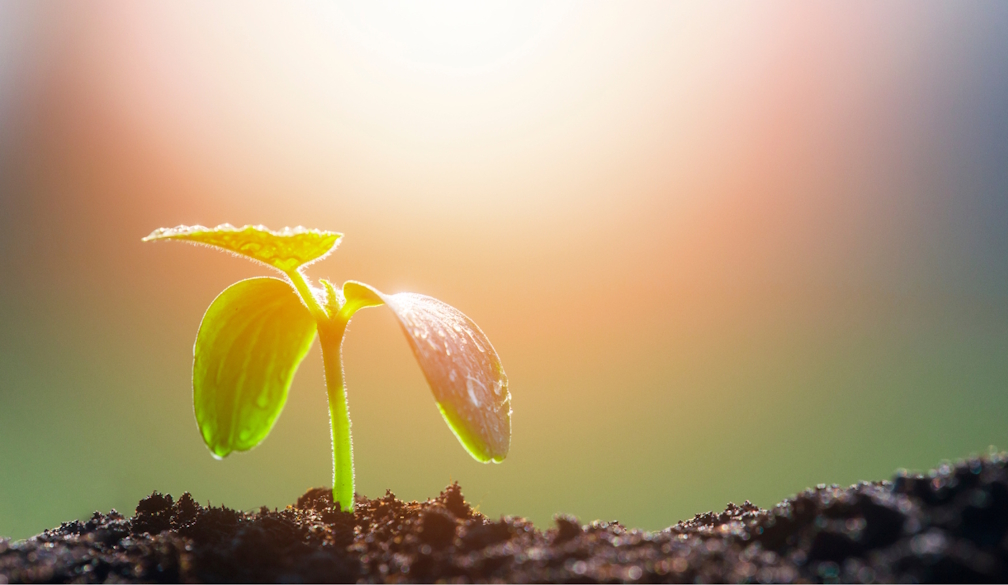Lunaria One Secures Ride to the Moon on Intuitive Machines’ Third Lunar Mission Scheduled for 2025

Lunaria One has confirmed its payload will travel to the Moon aboard Intuitive Machines' third lunar mission, scheduled for 2025. Lunaria One’s mission will demonstrate how plants can survive the journey to the Moon and endure lunar surface conditions, while testing systems for supporting and monitoring plant growth in extreme environments. These insights aim to drive advancements for space and Earth-based applications.
“Our carefully developed payload of seeds and plants will benefit from the expertise of Intuitive Machines as a delivery partner, leveraging their proven experience in lunar missions,” said Lauren Fell, Director of Lunaria One and ALEPH Project Lead.
Intuitive Machines, the first commercial company to successfully land on the lunar surface, expressed enthusiasm for the collaboration with Lunaria One and Australia.
“Providing delivery and data transmission services for forward-thinking companies like Lunaria One, alongside other visionary payloads, opens up limitless possibilities for the lunar economy,” said Intuitive Machines CEO Steve Altemus. “Together, we’re taking critical strides toward sustaining human life on the Moon and building the infrastructure that powers a thriving lunar economy.”
The ALEPH mission is backed by a $3.6 million grant from the Australian Space Agency’s Moon to Mars Demonstrator Mission Grants, which supports projects enabling Australia’s contribution to lunar exploration. Enrico Palermo, Head of the Australian Space Agency, said, “Understanding which plants to grow in space – and how best to grow them – will play a key role in human space exploration in the coming years, while giving us important scientific lessons to apply back on Earth.”
“ALEPH is an opportunity for Australia to be involved in making these discoveries, drawing on Australia’s extensive life sciences expertise.”
Through the public portal www.plantsonthemoon.au, citizen scientists and students can engage in plant testing, engineering, and photography challenges contributing to the project. Once the payload activates on the lunar surface, the opportunity will be open to anyone to be involved in the science by running parallel experiments in their homes and schools, adding their findings to a live scientific database. This data will help compare plant growth under varying conditions, including those experienced on the Moon.
The ALEPH mission is a collaborative effort, bringing together expertise from Australian research institutions, non-profits, and industry partners to address the unique challenges of growing plants on the Moon.
RMIT University, known for its expertise in aerospace engineering, is leading the design and manufacture of the payload, which will house the seeds and monitor plant growth on the lunar surface. This involves creating a system robust enough to survive space travel while supporting life in extreme lunar conditions. Lunar Outpost Oceania is providing flight qualification input to help ensure that the payload meets the stringent requirements of spaceflight, from launch vibrations to the harsh thermal environment of the Moon. During the mission, CSIRO, Australia’s national science agency, will provide use of their ground stations on a commercial basis for lunar communications with the mission.
Engineering for the Moon provides valuable insights about optimising plant and crop production here on Earth. Microgreen growth company Micropod, and indoor vertical farming technology company, InvertiGro, are contributing to the science and engineering behind the project, while also exploring potential spin-off technologies that could benefit agriculture in resource-scarce or harsh environments on Earth. Queensland University of Technology (QUT), RMIT University and Australian National University (ANU) lead the Australian biological science efforts, while international partners from the University of Cape Town, Ben Gurion University, and the Millennium Seed Bank at Kew Gardens contribute research on plant selection and growth optimisation for the lunar environment.
Public engagement through education and participation is also a key focus of the ALEPH project, which has led to partnership with Stile Education and One Giant Leap Australia Foundation. Stile Education is used by over 40% of High Schools in Australia, and they will be responsible for developing curriculum-aligned content, including a citizen science component, to promote learning through active participation in the project. One Giant Leap Australia Foundation will provide further opportunities for a diverse range of students to engage with the mission.
“This mission is about more than just science and technology; it’s about bringing people with us, fostering innovation, and showing Australians of all ages there is a place for them in our space industry,” said Lauren Fell, Director of Lunaria One and ALEPH Project Lead. “By crowdsourcing ideas and engaging diverse audiences, we not only create participation opportunities but also drive innovation. Fresh perspectives help us solve problems in new ways.”
Lunaria One’s research aims to inform future efforts in space-based life support systems and terrestrial agriculture. The company is also planning a second lunar mission with SpaceIL’s Beresheet 2 lander, further advancing technologies to support human life in space. To learn more and participate in the project, visit www.plantsonthemoon.au.

















